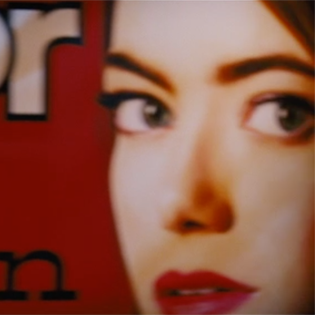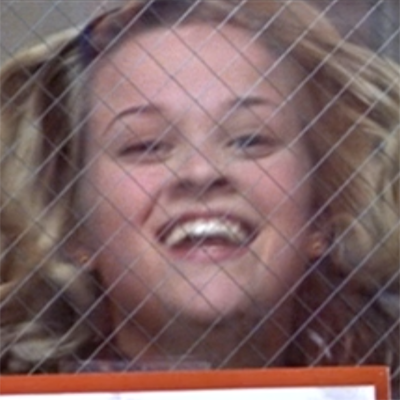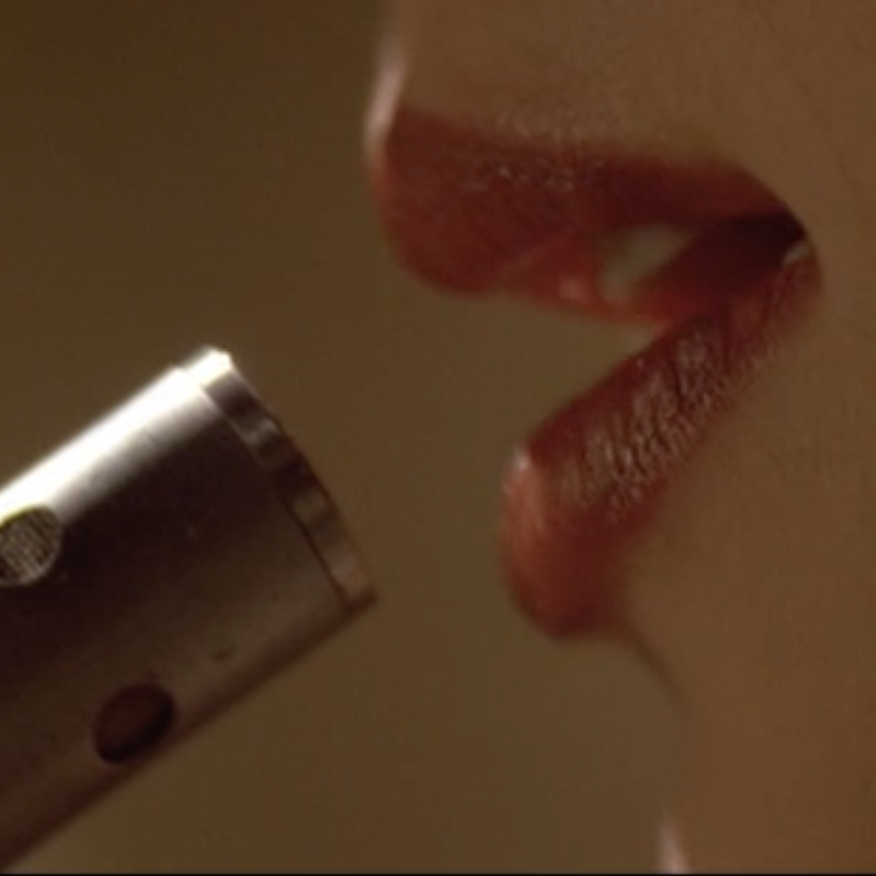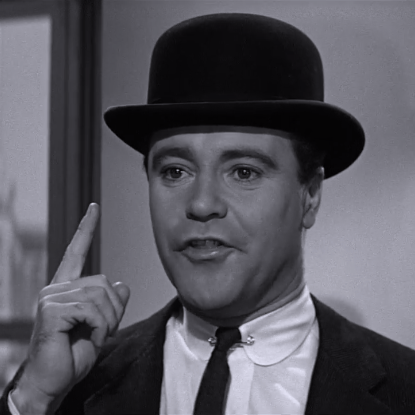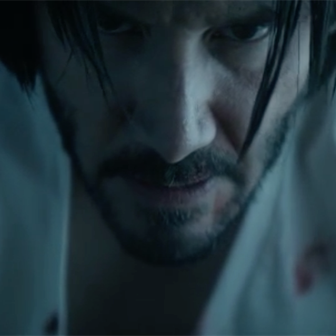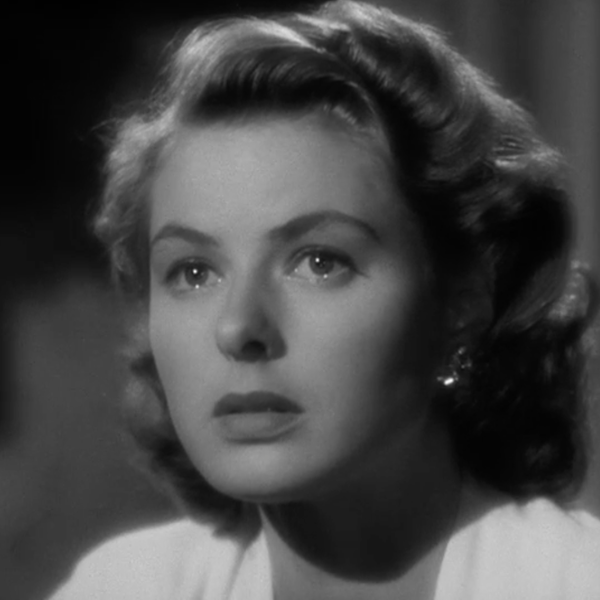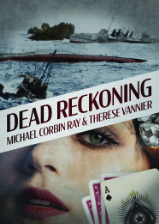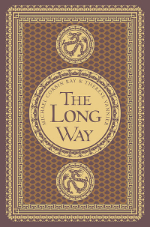Resources for writers and screenwriters
There’s no shortage of resources out there for writers and screenwriters. Foundational to any aspiring storyteller’s education, though, is the simple act of reading what you hope to write: read the screenplays, read the novels, read the short stories and novellas and graphic novels. Read whatever it is that turns you on and read the ones you don’t think you’re into as well. Read, read, read. See how the writers who came before you did what they did. Read the classics, read the latest best sellers, read the potboilers and romances and the science fiction and mystery and the introspective literary twiddling.
Read everything

And when it comes to movies and television? Watch it all.
The catch, though, is not to consume your entertainment mindlessly. Pay attention to what you see. When something surprises you, when you find yourself holding your breath, if you’re aroused in any way—mentally, emotionally, sexually—go back and take a closer look. Figure out how the writer did that to you. Try to understand what’s happening in your own head. Learn from the experience, make a note of the trick that’s been played on your brain, and see if you can turn it into a tool for your own writing. Go ahead and steal like an artist since there’s nothing new under the sun. Shakespeare did it and so can you.
And if you still want some help?
Well, there are plenty of people out there willing to sell you a book.
I’ve always been a bit skeptical of screenwriting books, but I’ve still managed to put quite a few on my shelves over the years. I’m not sure that I’ve managed to read any of them all the way through, but there’s generally at least a useful tidbit or two that can be pulled from any of them—and there’s also usually something that I strongly disagree with. It’s almost impossible for me to read any of the better known screenwriting gurus without thinking fondly of William Goldman’s famous quote:
Nobody knows anything.
Still, here we are, well into an introduction to a list of books intended to tell you how to tell a story. This is not a comprehensive collection. It’s just what I happened to find on my shelves. I’m sure I’ve lost and forgotten plenty. Some of them I like, some of them not so much. Many of these are affiliate links, so I earn a small commission if you make a purchase after clicking. That’s always appreciated.
Screenwriting Books
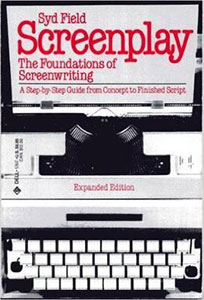
- Screenplay by Syd Field — This is a pretty good place to start if you’re just starting out, and it can be a nice refresher if you’re stuck. BUY
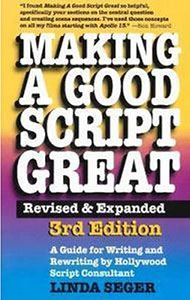
- Making a Good Script Great by Linda Seger — A helpful book with some practical steps to take when revising a script. BUY
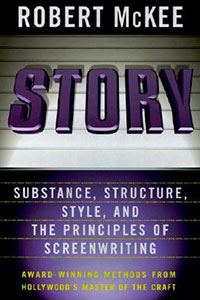
- Story by Robert McKee — I really don’t like this book. Also, I’ve only read a little bit of it, so my opinion here shouldn’t count for much. I came at this one rather late and what little bit I did read seemed like pretty basic information. That combined with McKee’s superior attitude turned me off. But hey, without McKee we wouldn’t have Brian Cox playing McKee, so there’s that. BUY
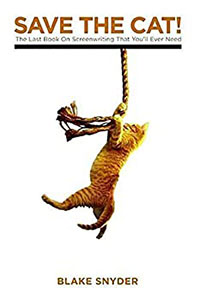
- Save the Cat by Blake Snyder — Here’s a confession: I haven’t read this book, even though I made a joke about it in my John Wick article. But lots of people seem to like it. BUY
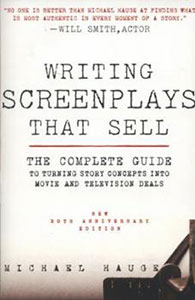
- Writing Screenplays that Sell by Michael Hauge — This is one of the first screenwriting books I read many years ago, and I remember I found it helpful at the time. The screenplay I was working on then ended up taking a silver medal in the Page competition. I’m not sure what happened to my copy of this book, so I can’t look at it again to see what I think of it now. BUY
Playwriting Books
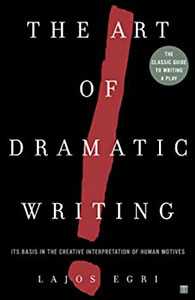
- The Art of Dramatic Writing by Lajos Egri — This is an old book—first published 1946—and can seem rather dated in reference and style, but it’s still useful as a look at character and character interaction. BUY
Storytelling Books
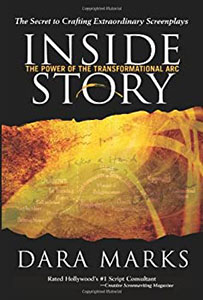
- Inside Story: The Power of the Transformational Arc by Dara Marks — A nice approach to story that focuses more on character development than pure plot. BUY
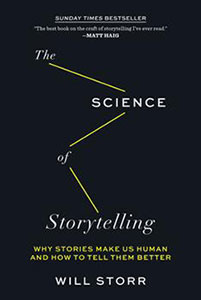
- The Science of Storytelling by Will Storr — I like the approach this book takes to exploring how and why stories work, rather than directing the writer towards any particular structure. BUY
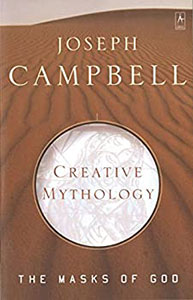
- The Masks of God, Vol. 4: Creative Mythology by Joseph Campbell — After college I spent a year living in and traveling around Europe. I bought this book in London and read it as I hiked and hitchhiked through Greece, Italy, and Ireland. When I finished it, all I wanted to do was rush home and write a book. It turned out to be a pretty mediocre book (mine, not Joseph Campbell’s). BUY
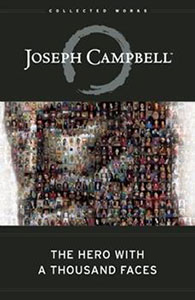
- The Hero with a Thousand Faces by Joseph Campbell — This is a classic. I imagine George Lucas read this and then went off to write Star Wars. I guess Campbell worked out better for him than for me. BUY
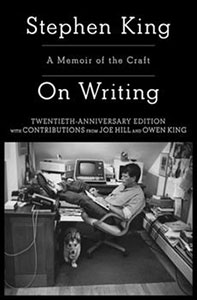
- On Writing by Stephen King — Another confession: not only have I not read this book, but I’ve never read anything by Stephen King. I’ve never been all that into horror, and I’ve sometimes been a little snobby in my literary taste. But you can’t argue with the man’s success and I’ve only heard great things about this book. BUY
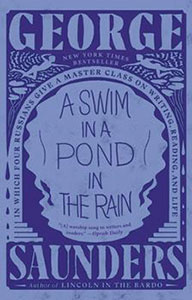
- A Swim in a Pond in the Rain by George Saunders — This is a fantastic book. Highly recommended. It’s like sitting in on George Saunders’ seminar class where he analyzes all these classic Russian stories to figure out what makes them tick. Even if you’re not into the Russians (Chekhov, Turgenov, Tolstoy, and Gogol are all included here) you’ll learn a lot about writing and storytelling from this book. BUY
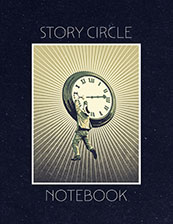
- Story Circle Notebooks — I’ve published a few blank journals featuring story circle templates alternating with dot grid pages that can be used for notes or storyboarding—whatever you like. Three editions are available: 30-page paperback, 100-page paperback, and 150-page hardback (in case you expect your story notes to be housed in the Academy museum someday, maybe). Or if you just want a downloadable story circle template pdf, sign up for my mailing list and I’ll send you a link. BUY
Filmmaking Books
If you’re serious about screenwriting, then it doesn’t hurt to have a decent understanding of what goes into making a film beyond the pages of your script. And honestly, these days, if you’re serious about screenwriting then you might be better off writing something that you can direct yourself.
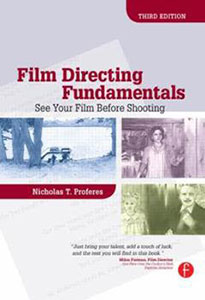
- Film Directing Fundamentals by Nicholas T. Proferes — If you’re not planning to make your own movies, then either this book or the next will give you a nice introduction to the director’s point of view, which will be helpful in your work as a screenwriter. But always remember that you’re the writer, not the director, so don’t try to take over both jobs in your screenplay! BUY
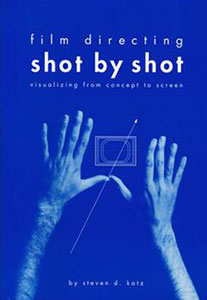
- Film Directing Shot by Shot by Steven D. Katz — But if you do want to try your hand at directing your own film some day, then maybe pick up this book and the one above. BUY
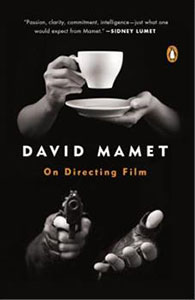
- On Directing Film by David Mamet — A slim, easy read based on a series of lectures David Mamet gave around the time he moved from working as a screenwriter into directing as well. It’s possibly still valuable if you can get past his recent enthusiastic embrace of the political dark side. BUY
Film Studies Books
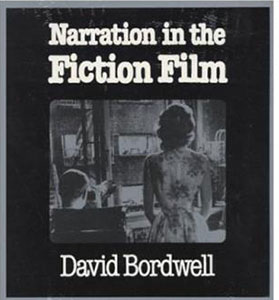
- Narration in the Fiction Film by David Bordwell — This is a dense academic book with a focus on some dense old films. But if you get through it, you’ll know more than most people about how stories work in film. BUY
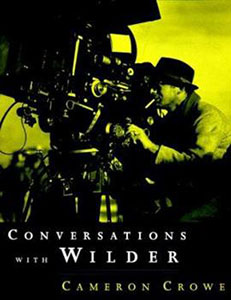
- Conversations with Wilder by Cameron Crowe — I’m a big Billy Wilder fan. So is Cameron Crowe. You are too, even if you don’t know it yet. BUY
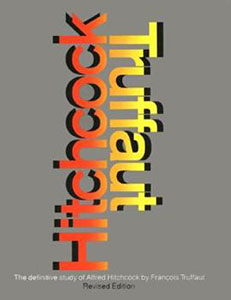
- Hitchcock/Truffaut by Francois Truffaut — A classic conversation about film between two great directors. BUY
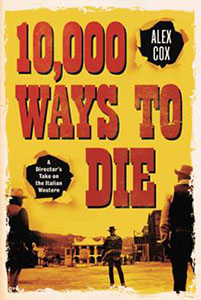
- 10,000 Ways to Die: A Director’s Take on the Italian Western by Alex Cox — Alex Cox directed Repo Man, one of my ’80s favorites, and here he gives a comprehensive run down of just about every spaghetti Western ever made. If you’re considering writing a Western yourself, this can be a good resource. BUY
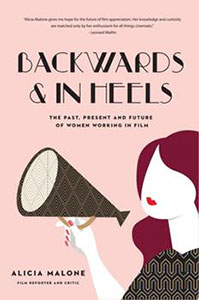
- Backwards and in Heels: The Past and Future of Women in Film by Alicia Malone — I kind of adore Alicia Malone and I’m also a fan of historical Hollywood. This book brings those two wonderful things together. BUY
Film Business Books
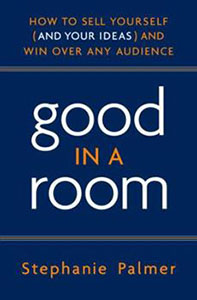
- Good in a Room by Stephanie Palmer — This is a really helpful general life and business book by a former MGM development exec. It’s a great resource for learning how to pitch your ideas—and yourself—to people who have the power to say yes but are expert at saying no. BUY
Copywriting and Advertising Books
This section might seem a little out of left field when it comes to the type of storytelling we’ve been talking about, but trust me. Advertising pros know how to tell stories that stick. They play with your emotions. They manipulate you into feeling a certain way, into doing a certain thing, into buying their altered reality. If you can do all that, then you’re well on your way to writing a successful story—or maybe even selling one.

- Influence by Robert Caldini — All about the psychology of getting people to agree to something. Use it to get to what you want as a screenwriting professional, use it to develop characters in your stories, or maybe use it for both. BUY
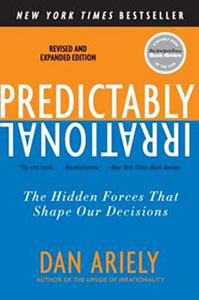
- Predictably Irrational by Dan Ariely — A look at how seemingly irrational behaviors are actually sytematic and predictable, which makes this another potentially great resource for character development. BUY
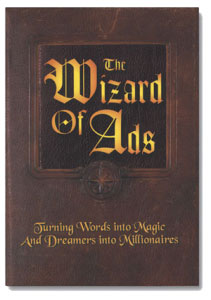
- The Wizard of Ads by Roy Hollister Williams — A collection of very short essays explaining principles of advertising and persuasion. The principles discussed here are entertaining and informative, and they’re presented in a way that they could also be a source of entertaining story ideas. BUY
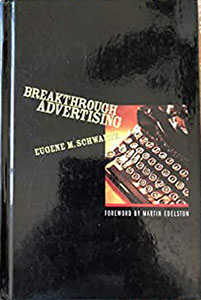
- Breakthrough Advertising by Eugene M. Schwartz — Highly sought after and out of print, this book is available used on Amazon for ... let me check ... only $466.96. If that’s more than you want to spend, try Googling around for a pdf. If you still can’t find it, hit me up through my contact form on this site and I’ll email you a copy. BUY
Getting the Work Done Books
I’ve mentioned before on this site that the one thing all successful writers have in common is that they finish the work. That’s easier said than done when distraction is part of the job description. Story research inevitably involves countless hours lost in Internet rabbit holes. But eventually we have to bear down and write. Here are a couple of books I definitely recommend for organizing your work and life and maintaining focus:
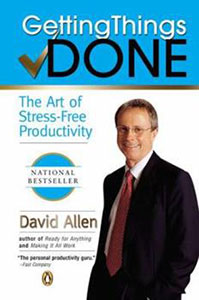
- Getting Things Done: The Art of Stress-Free Productivity by David Allen — Highly recommended as a practical system for taking charge of your to-do lists and incoming tasks for both work and home. BUY
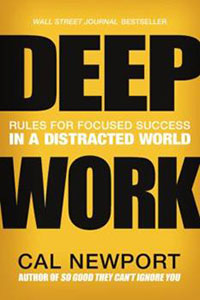
- Deep Work: Rules for Focused Success in a Distracted World by Cal Newport — Deep Work is going to tell you to get rid of your social media accounts. That can be hard to do for an aspiring creative, where social media is often part of the job. But even if you hold onto those accounts, this is a great asset for taking control of lost hours and redirecting focus towards hitting your goals. BUY
Miscellaneous Helpful Links

My Books
Recent Posts
- Before Sunrise
- Pulp Fiction
- Moonrise Kingdom
- Party Down
- Eternal Sunshine of the Spotless Mind
- The Limey
- La La Land
- The Apartment
- Kiss Kiss Bang Bang
- John Wick
- Election
- Casablanca
Help Me Choose
What movie should I write about next? I have a few ideas, but I‘m open to suggestions:
CatsChildren Of Men
Donnie Darko
Four Weddings and a Funeral
Good Will Hunting
Grosse Point Blank
Hell or High Water
Jo Jo Rabbit
La Dolce Vita
La Notte
Logan
Miller's Crossing
Moonlight (2016)
Never Let Me Go
Pan's Labyrinth
Punch Drunk Love
Rambo
Star Wars
The Big Lebowski
The Nice Guys
The Raid 2
or something else
Vote Results for Upcoming Posts
Thank you for your suggestion! Be sure to sign up below to be notified when new story circles are posted to the site!
Pan's Labyrinth (14%)
Donnie Darko (12%)
Star Wars (11%)
Jo Jo Rabbit (8%)
The Big Lebowski (7%)
Punch Drunk Love (7%)
Children Of Men (6%)
Good Will Hunting (5%)
Hell or High Water (5%)
Other
Thanks again! And hey, if you’d like to write one of these articles, hit me up.
Write for Story24
If you’re interested in contributing to this site, I would love to hear from you. Learn more here:
Other Business
Some of the links on this site are affiliate links. I earn a small commission when purchases are made after these links are clicked.
